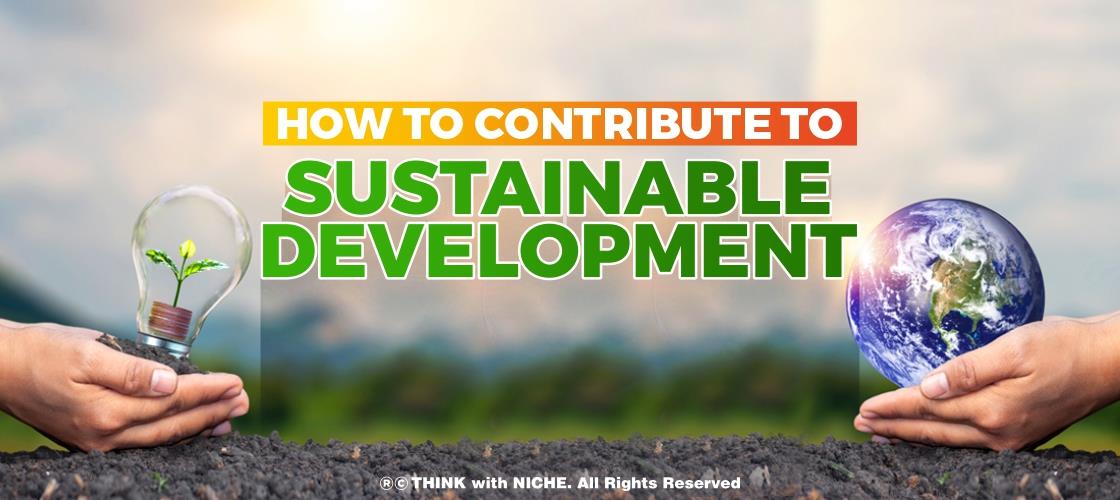The Lazy Person’s Guide to Saving the World

Blog Post
The 17 Sustainable Development Goals have been ratified by the United Nations. They appear to be a surprisingly simple no-brainer that everyone should support. Unfortunately, some policy experts are already warning that we risk failing to meet them.
Others, however, believe that we can – as long as we commit to and invest in achieving them.
So, regardless of where you are, what you do, or what you have, here are some simple things you can do to help the world achieve sustainable goals – a world free of poverty, income inequality, and injustice. #TWN
End world poverty! Fight injustice and inequality! Fix climate change!
The Sustainable Development Goals are significant, world-changing goals that will necessitate collaboration among governments, international organizations, and world leaders. It appears that the average person cannot have an impact. Should you simply give up?
No! Change begins with you. Seriously. Every human being on the planet—even the most apathetic, slacker among us—is a part of the solution. Fortunately, there are some very simple things we can incorporate into our daily routines that, if we all do them, will make a significant difference.
What are the 3 things we need for sustainable development to happen?
Economic Growth, Environmental Stewardship, and Social Inclusion are the three components of sustainable development.
How can students contribute to protecting our environment?
If the lights are not in use, turn them off. If your electronics aren't in use, unplug them. If the air conditioners aren't in use, turn them off. Will you?
How can you contribute to our environment?
- Reduce, reuse, and recycle.
- Choose sustainable.
- Conserve water.
- Plant a tree.
How to Contribute to Sustainable Development Goals (SDGs)
Take a look at a few of the many things you can do to make a difference:
Things You Can Do From Your Couch
- Plug appliances into a power strip and turn them off completely when not in use, including your computer, to save electricity.
- Stop receiving paper bank statements and instead pay your bills online or via mobile. There is no need for forest destruction if there is no need for paper.
- Don't just like, share. If you come across an interesting social media post about women's rights or climate change, share it so that others in your network can see it as well.
- Speak up! Ask your local and national authorities to participate in initiatives that do not harm people or the environment. You can also express your support for the Paris Agreement and request that your country ratify or sign it if it hasn't already.
- Do not print! Have you come across something on the internet that you need to remember? Save the paper by writing it down in a notebook or, better yet, a digital post-it note.
- Turn the lights off. Turn off other lights if you don't need them because your TV or computer screen provides a warm glow.
- Do some research online and only buy from companies that you know have sustainable practices and are not harmful to the environment.
- Online bullies should be reported. If you see someone harassing someone else on a message board or in a chat room, report them.
- Keep yourself up to date. Keep up with local news and the Global Goals on the web or social media at @GlobalGoalsUN.
In addition to the above, consider carbon offsetting your remaining emissions! Climate Neutral Now allows you to calculate your carbon footprint and purchase climate credits. As a result, you aid in the faster reduction of global emissions!
Things You Can Do At Home
- Air dry! Instead of using a dryer, let your hair and clothes dry naturally. If you do decide to wash your clothes, make sure the load is full.
- Take short showers. Bathtubs use gallons of water more than a 5-10 minute shower.
- Reduce your consumption of meat, poultry, and fish. More resources are expended to produce meat than to produce plants.
- If you don't have time to eat fresh produce or leftovers before they go bad, freeze them. You can also do this with take-out or delivered food if you know you won't be hungry the next day. You'll save both food and money.
- Composting food scraps can help to reduce climate change while also recycling nutrients.
- Recycling paper, plastic, glass, and aluminum helps to keep landfills from expanding.
- Purchase items that are minimally packaged.
- Preheating the oven is not necessary. Unless you require a precise baking temperature, begin heating your food as soon as the oven is turned on.
- To improve energy efficiency, seal air leaks around windows and doors.
- Lower your thermostat in the winter and raise it in the summer. Replace old appliances with energy-efficient models and light bulbs.
- Install solar panels in your home if you have the option. It will also help you save money on your electricity bill!
- Purchase a rug. Carpets and rugs keep your home warm and your thermostat set to a low temperature.
- Don't rinse! If you use a dishwasher, finish rinsing your dishes before starting the machine.
- Pick a better diaper option. Swaddle your baby in cloth diapers or a new, eco-friendly disposable brand.
- Shovel snow manually. Get some exercise instead of using the loud, exhaust-churning snowblower.
- Use cardboard matches. Unlike plastic gas-filled lighters, they do not require any petroleum.
Things You Can Outside Your House
- Shop locally. Supporting local businesses keeps people employed and reduces the need for trucks to travel long distances.
- Shop Smart: Plan your meals, make a shopping list, and avoid impulse purchases. Don't fall for marketing ploys that lead you to buy more food than you need, especially perishable items. Though these may be less expensive per ounce, they may be more expensive overall if a large portion of the food is discarded.
- Buy Funny Fruit: Many fruits and vegetables are discarded because they are the wrong size, shape, or color. Purchasing these perfectly good and amusing fruits at a farmer's market or elsewhere. It will aid in the utilization of food that would otherwise go to waste.
- When ordering seafood at a restaurant, always ask, "Do you serve sustainable seafood?" Let your favorite businesses know that you're looking for ocean-friendly seafood.
- Only buy seafood that is sustainably sourced. There are now several apps that will tell you what is safe to eat.
- Ride your bike, walk, or take public transportation. When you have a large group, save the car trips.
- Use a reusable coffee cup and water bottle. Reduce waste and possibly save money at the coffee shop.
- When you go shopping, bring your own bag. Instead of using plastic bags, start using reusable totes.
- Reduce the number of napkins you use. To eat your takeout, you don't need a bunch of napkins. Take only what you require.
- Shop vintage! The best isn't always the most recent. Look for items that can be repurposed from thrift stores.
- Maintain the condition of your vehicle. A well-maintained vehicle produces fewer toxic fumes.
- Donate anything you don't need. Your gently used clothes, books, and furniture will be given new life by local charities.
- Vaccinate yourself as well as your children. Public health is aided by protecting your family from disease.
- Make the most of your right to vote for the leaders of your country and community.
Things You Can Do At Work
- Don't throw away any fruit or snack that you don't want. Give it to someone who is in need and has requested assistance.
- Is healthcare available to everyone at work? Find out what your employment rights are. Inequality must be addressed.
- Young people should be mentored. It's a thoughtful, inspiring, and effective way of pointing someone in the right direction.
- For the same work, women earn 10% to 30% less than men. Pay disparities exist all over the world. Show your support for equal pay for equal work by signing the Equal Pay for Equal Work petition.
- 4 billion people do not have access to basic sanitation. Contribute your voice to the global conversation about the lack of toilets in many communities!
- Make sure your company uses energy-efficient heating and cooling technology, and set the thermostat to a lower temperature in the winter and a higher temperature in the summer.
- Keep yourself up to date. Learn about other countries' workers and business practices. Discuss these issues with your coworkers.
- Is your company making investments in infrastructure that is both clean and resilient? It's the only way to keep employees safe while also safeguarding the environment.
- Raise your voice in the workplace against any form of discrimination. Regardless of gender, race, sexual orientation, social background, or physical abilities, everyone is treated equally.
- To get to work, ride your bike, walk, or take public transportation. When you have a large group, save the car trips.
- Organize a "No Impact Week" at your office. For at least a week, practice living more sustainably!
- Speak up! Ask your company and government authorities to take initiatives that will benefit people and the planet. Make your voice heard in support of the Paris Agreement!
- We produce a lot of waste on land, and a lot of it ends up in the oceans.
- Examine and alter day-to-day decisions. Is it possible to recycle at your place of business? Is your company buying from companies that use environmentally harmful practices?
- At work, be aware of your rights. Knowing what you are entitled to will go a long way toward obtaining justice.
- Corporate social responsibility is extremely important! Encourage your business to collaborate with civil society and look for ways to assist local communities in achieving their objectives.
If you liked reading this article, we have two more for you. Click on the link below to explore!
What is sustainable development?
You May Like
EDITOR’S CHOICE














